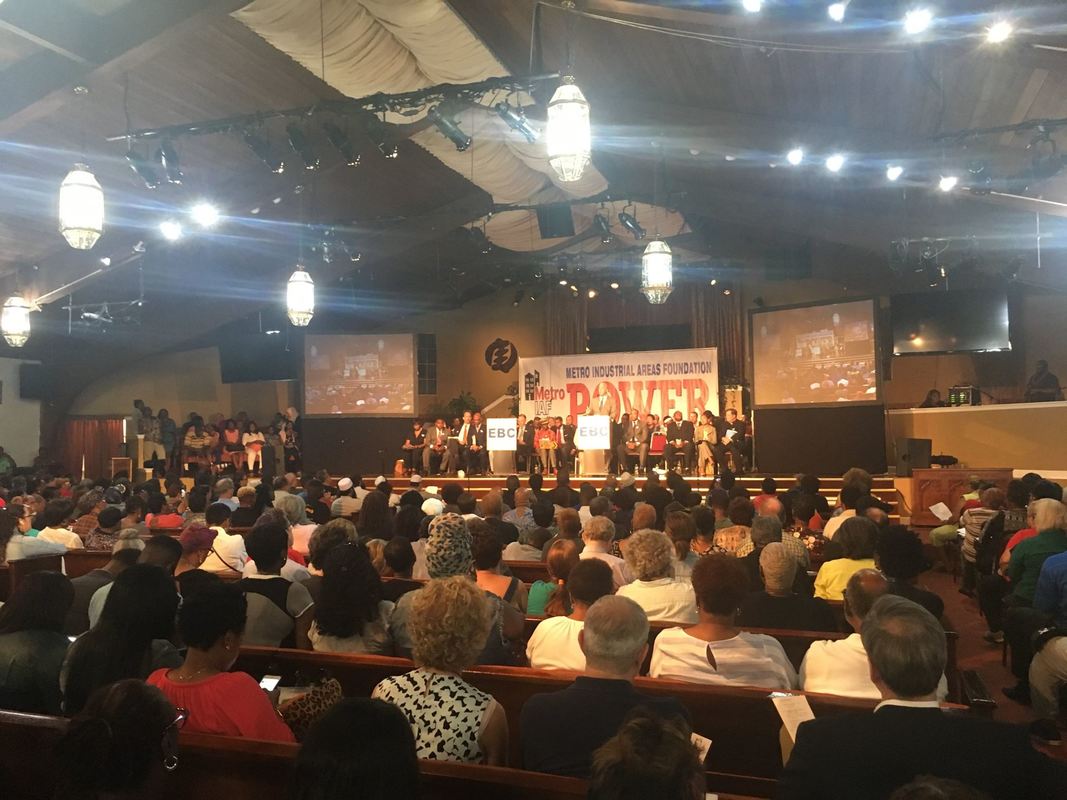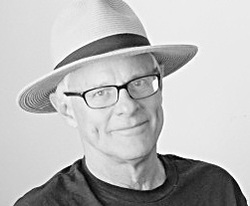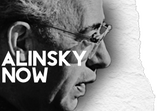|
The opening line of a recent piece about VOICE/IAF by Patricia Sullivan in the Washington Post caught my eye: "An increasingly powerful coalition of faith-based activists won a commitment from a majority of the Alexandria City Council Tuesday night to increase support for public housing and affordable housing in the city."
It wasn't the winning part - anyone who knows Industrial Areas Foundation organizations expects victories. Nor was it the issue of affordable housing being successfully pressed - IAF has long made a mark in this area. Rather, it was the reporter's use of the descriptive "increasingly powerful" that hit home. Difficult as it is to measure, a raft of IAF organizations around the USA and abroad may be fairly characterized that way. (There's plenty of evidence to support this claim, starting with the top ten stories up on www.democraticfaith.com.) While VOICE is gaining affordable housing commitments in Alexandria, Together Jackson is successfully battling a local food desert, DAI and COPA are championing immigrant rights, ONE LA is running point on a huge housing deal, CONECT and Greater Cleveland Congregations are reinventing the struggle for criminal justice reform, Jersey City Together is in the middle of a major development fight, Together Louisiana just busted up a sweetheart tax deal for big business, DuPage United/Fox River Valley Initiative put over 500 leaders at the center of a multi-issue action in suburban Chicago, 1500 leaders in Brooklyn (EBC, Manhattan, the South Bronx, and Queens) gained a mega commitment from NYPD Police Chief O'Neill to meet with gun manufacturer Glock (a Metro DNSIB goal for three years). More.
And here's a kicker: Many IAF organizations have simultaneously been major players in the battle against Trumpcare. They are positioned to do still more as healthcare politics continues front and center on the national stage. This is because IAF organization tentacles reach into many of the key states, some red, some blue, whose Senators will determine what happens next: Senators McCain and Flake - Arizona Interfaith; Senator Heller - Nevadans for the Common Good; Senator Cassidy - Together Louisiana; Senator Gardner - Colorado IAF. That's for starters. On the Democratic side: Senator Schumer - Metro IAF; Senator Murphy - CONECT; Senator Durbin - United Power, DuPage United, Fox River Valley Initiative, Again just for starters.
This reach and range isn't limited to health care. Also in IAF sights are gun violence, criminal justice reform, job training, housing/infrastructure, mental health and immigration reform. Neither Democrats nor Republicans have a viable, locally supported agenda to address the major issues of the day. Taken together IAF organizations do. Going forward it's clear that IAF organizations, far from being in the pocket of either political party, have a proven ability to build and sustain institutional power that crosses party lines. This makes these organizations especially efficacious both locally and in the big national battles that matter greatly on the ground where individuals and families live and work. It is astonishing that national media of record rarely recognize much less explore the substantive public business - of agenda building, action and impact - that IAF embodies day in and day out, year in and year out. (Contrast this with the fascination, indeed, preoccupation with the antics, postures, flash mobilizations and rabbit trails that offer little by way of constructive action linked to budget, policy reforms and engagement with major economic powers.) But in this regard the WaPo story on VOICE noted above may prove a harbinger of a pivot away from frivolous narratives, trumped up fabrications, and mind numbing "he said, she said", towards recognition of rock solid, substantive and meaningful organizing for power and justice. Regardless, IAF is in it for the long haul.
0 Comments
|
Frank C. Pierson, Jr.Frank Pierson retired after forty years of work with the Industrial Areas Foundation (IAF) as a professional organizer. He began his career in 1971 in Chicago, moved to Queens, New York City and migrated west to work in Arizona, New Mexico, Nevada and Colorado. He resides with his wife, Mary Ellen Kazda, in Oracle, Arizona. He may be reached at alinskynow@gmail.com Archives
June 2018
|



 RSS Feed
RSS Feed
